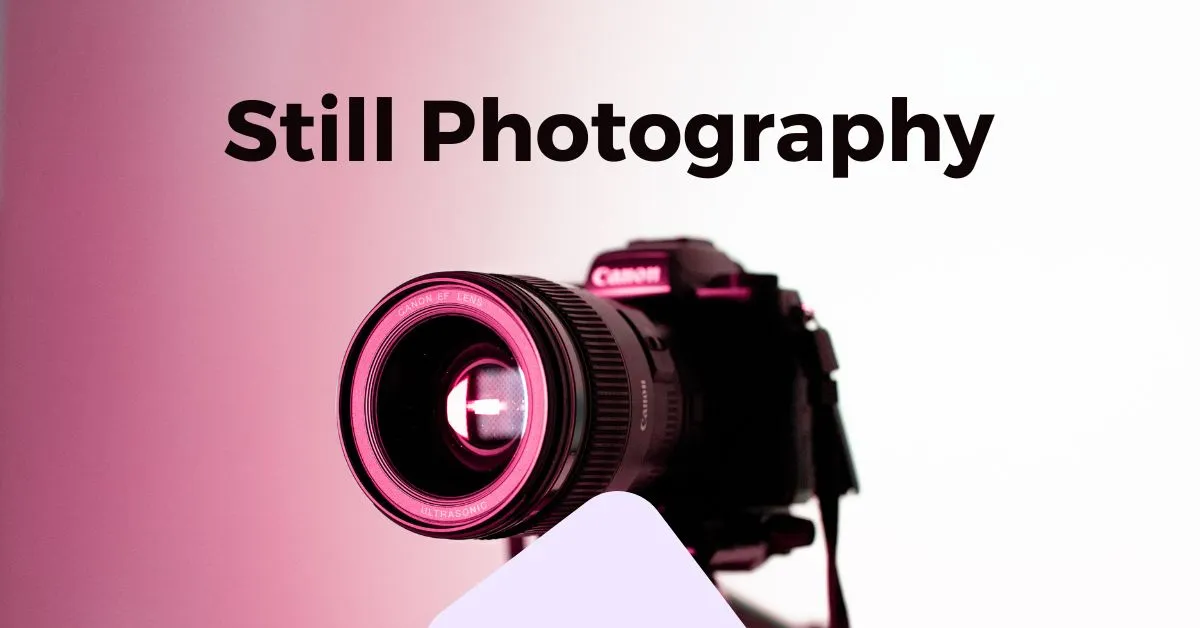


01, June 2023
In the age of smartphones and social media, everyone seems to be a photographer. But there's a distinct difference between a casual snapshot and the art of still photography. If you have an eye for detail, a passion for storytelling through images, and a desire to master the technical aspects of photography, a course in still photography can pave the way for a fulfilling career. In this blog post, we will explore the details of a still photography course, including its curriculum, fees, and eligibility criteria, helping you take the first step towards realizing your photography dreams.
Certificate programs in still photography provide a focused and intensive learning experience, typically spanning a few months to a year. These programs offer a comprehensive curriculum covering the essential principles and techniques of photography. Certificate courses are suitable for beginners or individuals looking to enhance their skills in a specific area of photography. While the duration and curriculum may vary across institutions, common topics covered in certificate programs include:
Degree programs in still photography offer a more extensive and in-depth study of the art form, combining theoretical knowledge with practical skills. These programs are typically offered at the undergraduate (bachelor's) and postgraduate (master's) levels. A degree course provides a comprehensive understanding of the technical and creative aspects of photography, along with critical thinking and research skills. The curriculum may cover subjects such as:
Photography Techniques: Advanced camera controls, lighting setups, and composition principles.
Diploma programs in still photography offer a balance between comprehensive theoretical knowledge and practical skills. These programs are often shorter in duration compared to degree courses but provide focused training in specific areas of photography. Diploma programs are suitable for individuals who want to specialize in a particular genre or aspect of photography. The curriculum may include:
Advanced Photography Techniques: Specialized techniques for specific genres like fashion, wildlife, or architectural photography.
Fees and eligibility criteria for still photography courses can vary depending on the institution and the specific program. However, here is a general overview:
The fees for still photography courses can range from affordable to higher-end, depending on factors such as the reputation of the institution, duration of the course, facilities provided, and additional resources offered. Certificate programs generally have lower fees compared to degree or diploma programs. It is recommended to research different institutions and their fee structures to find a course that fits your budget and offers value for your investment.
The eligibility criteria for still photography courses may vary across institutions and programs. However, here are some common requirements:
Educational Qualification: For most certificate, degree, and diploma courses, a higher secondary education (10+2) or its equivalent from a recognized board is typically required. Some institutions may accept individuals without a formal education if they can demonstrate a strong portfolio or relevant work experience.
Age Limit: There is usually no strict age limit for still photography courses. However, certain institutions may have age restrictions or preferences for specific programs. It is advisable to check with the institution directly for any age-related requirements.
English Proficiency: As photography courses involve theoretical and practical instruction, a good command of the English language is often required for effective communication and comprehension of course materials.
Passion for Photography: Having a genuine interest in still photography, a passion for visual storytelling, and a willingness to learn and develop your skills are important factors for success in this field. Some institutions may assess applicants based on their motivation and commitment to the art of photography.
After completing a still photography course, you can explore various career options in the field of photography and related industries. Here are some potential career paths you can consider:
These are just a few examples of the many career options available in the field of still photography. The industry is diverse, and there are opportunities for growth and specialization based on your interests and skills. It's important to network, build a strong portfolio, and continuously update your skills to stay competitive in the field.
A still photography course can be a transformative journey for aspiring photographers, providing them with the technical know-how, artistic vision, and business acumen needed to thrive in the industry. Whether you aspire to become a professional photographer, work in fashion, journalism, or pursue personal projects, a strong foundation in still photography can open doors to endless opportunities. Remember, the world is full of stories waiting to be captured through your lens. So, if you have a passion for photography, don't hesitate to explore a course in still photography and embark on a fulfilling career capturing moments that last a lifetime.